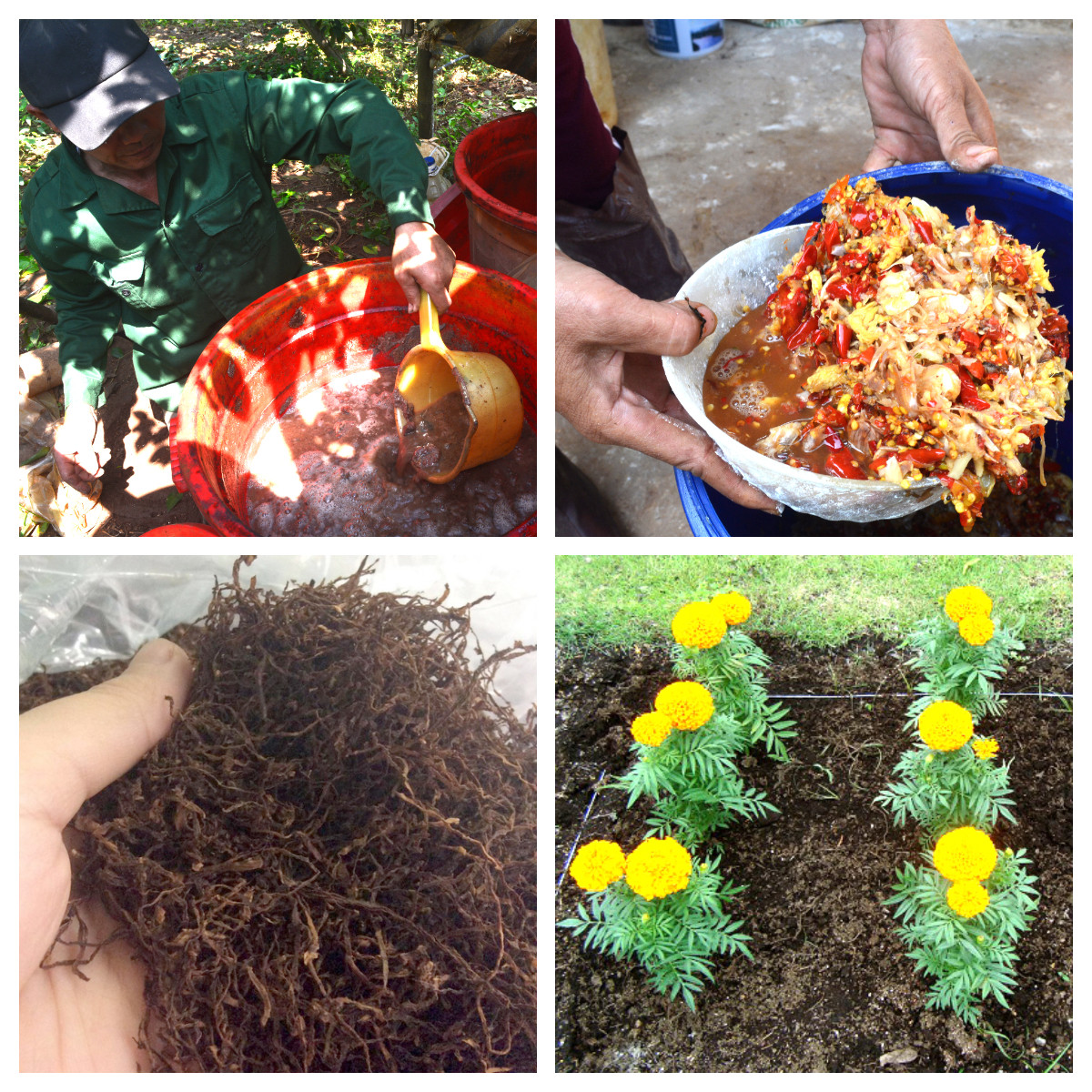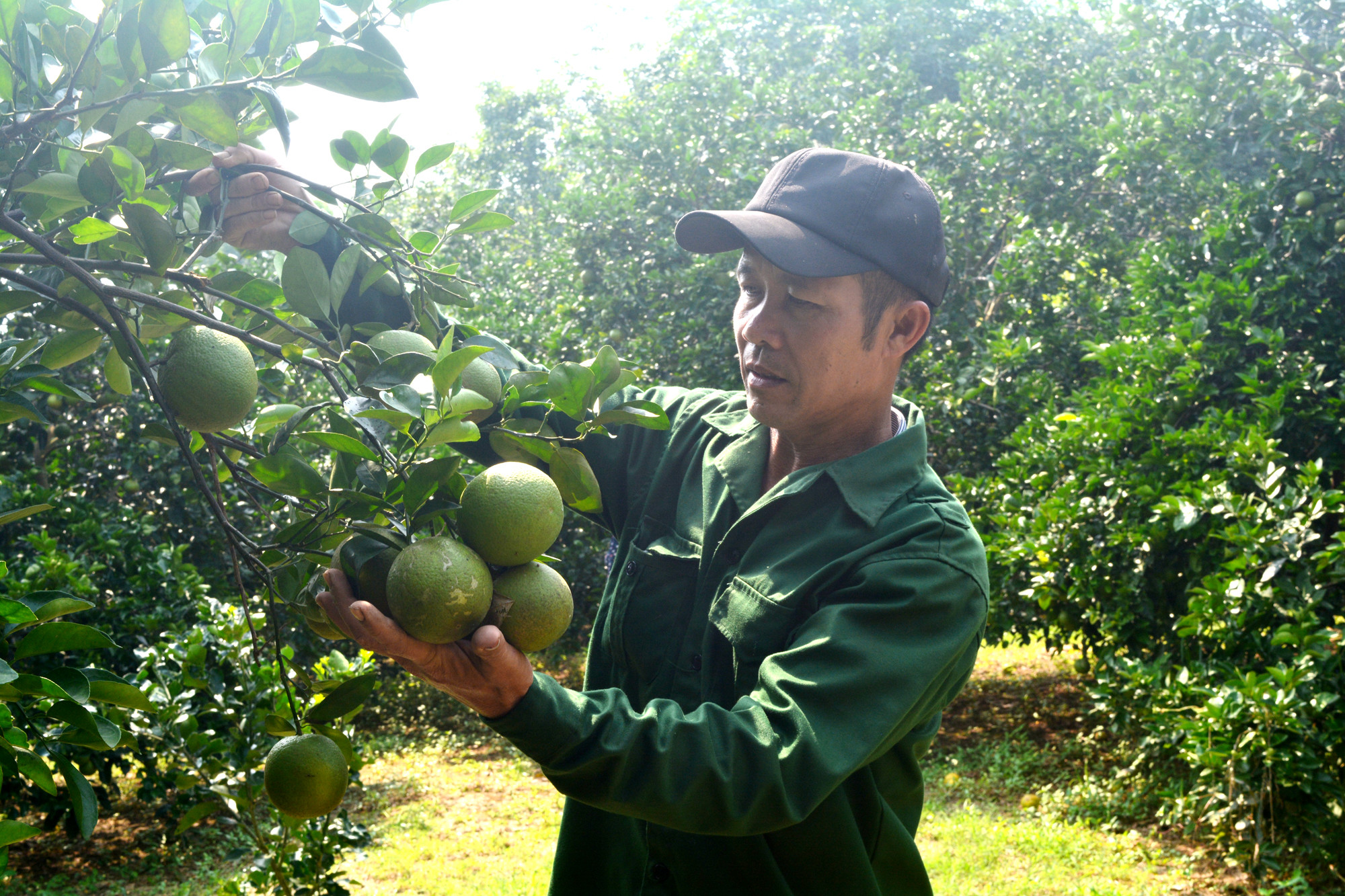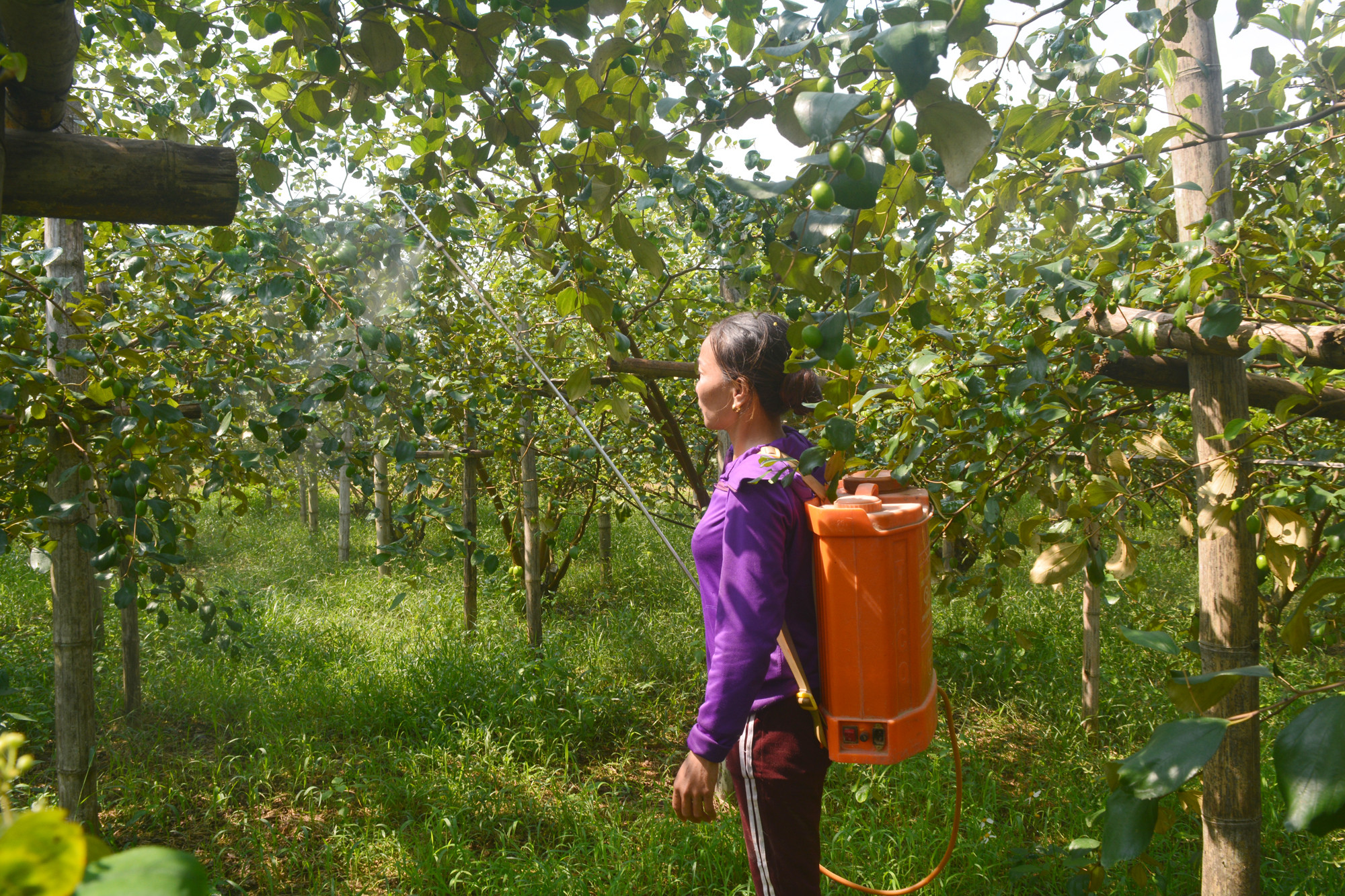'Secret' trick of using tobacco and chrysanthemum to treat orange diseases in Nghe An
(Baonghean.vn) - Orange growers in Tan Xuan hamlet (now Xuan Ly hamlet, Tan Phu commune, Tan Ky) have a "secret" to keeping oranges disease-free, fruitful, and sweet. That is, using tobacco, chrysanthemums soaked in alcohol, and molasses to treat orange diseases.
 |
| Tan Ky people use herbal preparations such as tobacco and chrysanthemums to take care of their orange gardens. Photo: Thanh Phuc |
At this time, 37 hectares of oranges of households in Xuan Ly hamlet, Tan Phu commune are in full ripeness. Orange trees full of sweet fruit are waiting for traders to order to open farms. The fences of the orange gardens are rows of tobacco, marigolds, lemon trees, and sua trees. It is thought that these plants are only for fences and decorative flowers for the garden. However, they are the raw materials for them to make herbal pesticides to treat diseases of oranges.
Another strange thing is that every few hundred meters in the orange farms of the farmers in this area, there is a small tent containing plastic barrels and ceramic tanks. These are tools for preserving fish for fertilizer, and herbal pesticides for spraying on oranges, apples, and guavas.
Mr. Nguyen Tan Phuong - Head of the Clean Orange Cooperative here said: "In the process of growing and caring for oranges, he and 24 other households in the group strictly follow the regulations of biosafety. In particular, to build the brand of clean oranges, 100% of the households here use herbal pesticides with ingredients available in their gardens."
 |
| Using herbs to treat orange diseases helps growers save 40% of costs and improve the quality of oranges. Photo: Thanh Phuc |
To treat leaf miners, armyworms, leaf rollers, fruit borers, etc., households use crushed garlic and chili peppers soaked in alcohol for 10 days, then dilute the solution with cold water and spray it on the tree. If the orange has fungus, use marigolds (plant and flowers), chopped tobacco, mix them together, sprinkle in probiotics, add water, leave for 20 days, dilute with water and water the tree roots.
To supplement trace elements for orange trees, to make oranges produce large, sweet and rich fruits, local households have their own "secret", which is to go to the Hua Na Hydropower Reservoir to buy small fish at 7,000 VND/kg, soak 70 kg of fish in 120 liters of honey and probiotics. After 2 months, filter 80 liters of mixed juice, mix 1 liter of juice with 80 liters of water, which yields 6,400 liters of commercial trace elements, and spray about 2 hectares of oranges.
In early 2019, when other orange areas were attacked by strange butterflies, the moths sucked and caused the oranges to fall, but in the Xuan Ly orange area, the oranges still bore fruit, grew and developed well. That was thanks to the people here finding the operating principle of this harmful butterfly: at night, they turned on the lights and used a net to catch it; during the day, they used a mixture of fermented fish water to spray the oranges in a cross shape (meaning spraying in a confined area, not spraying on all trees) to repel the butterflies. "This type of moth follows the scent of oranges and guavas to suck and cause damage. When spraying this mixture, the strong fishy smell overwhelms it so it can no longer detect the scent of the fruit and will automatically fly away."
 |
| Using homemade herbal pesticides is not toxic to the sprayer. Photo: Thanh Phuc |
Mr. Nguyen Tan Phuong said: “Compared to chemical pesticides, these herbs are cheap, easy to process and highly effective. In particular, they do not make the soil infertile, the orange trees degenerate like when spraying chemicals and the user’s health is not affected.
However, its disadvantage is that the oranges are not as big, not as shiny, and the appearance is not as beautiful as when using chemical pesticides... Currently, 25 households growing oranges in the cooperative all use the orange care process in the direction of biological safety, using herbal pesticides and homemade organic microbial fertilizers. From there, the production investment cost is reduced by 40%, and growers make a profit."
